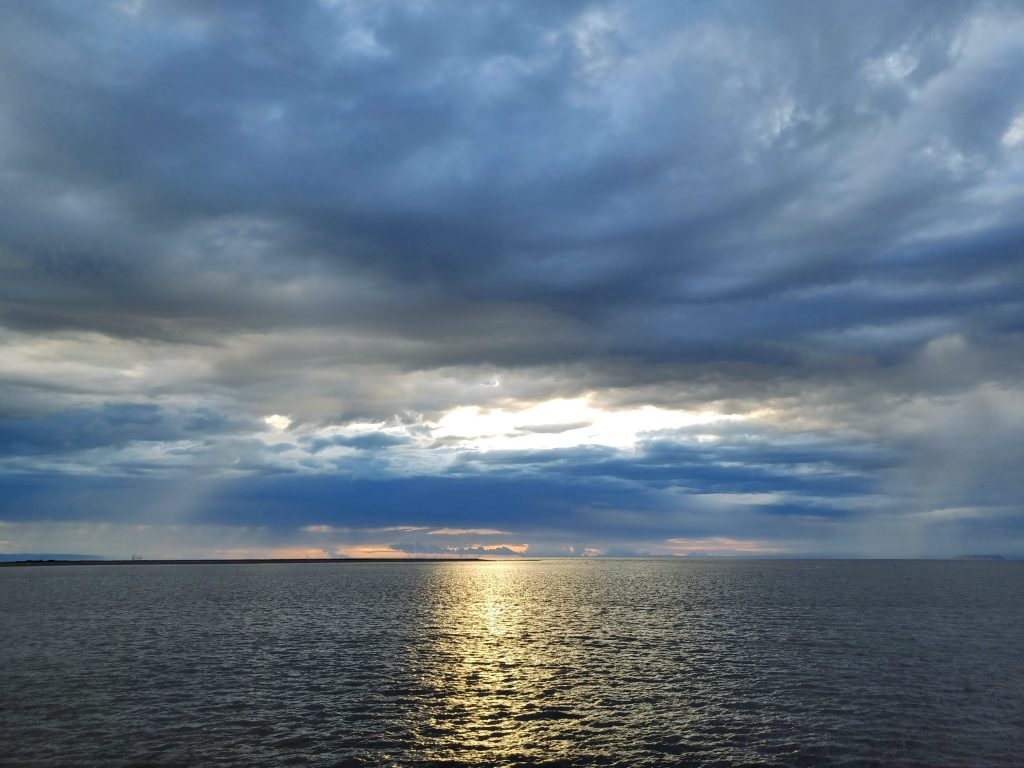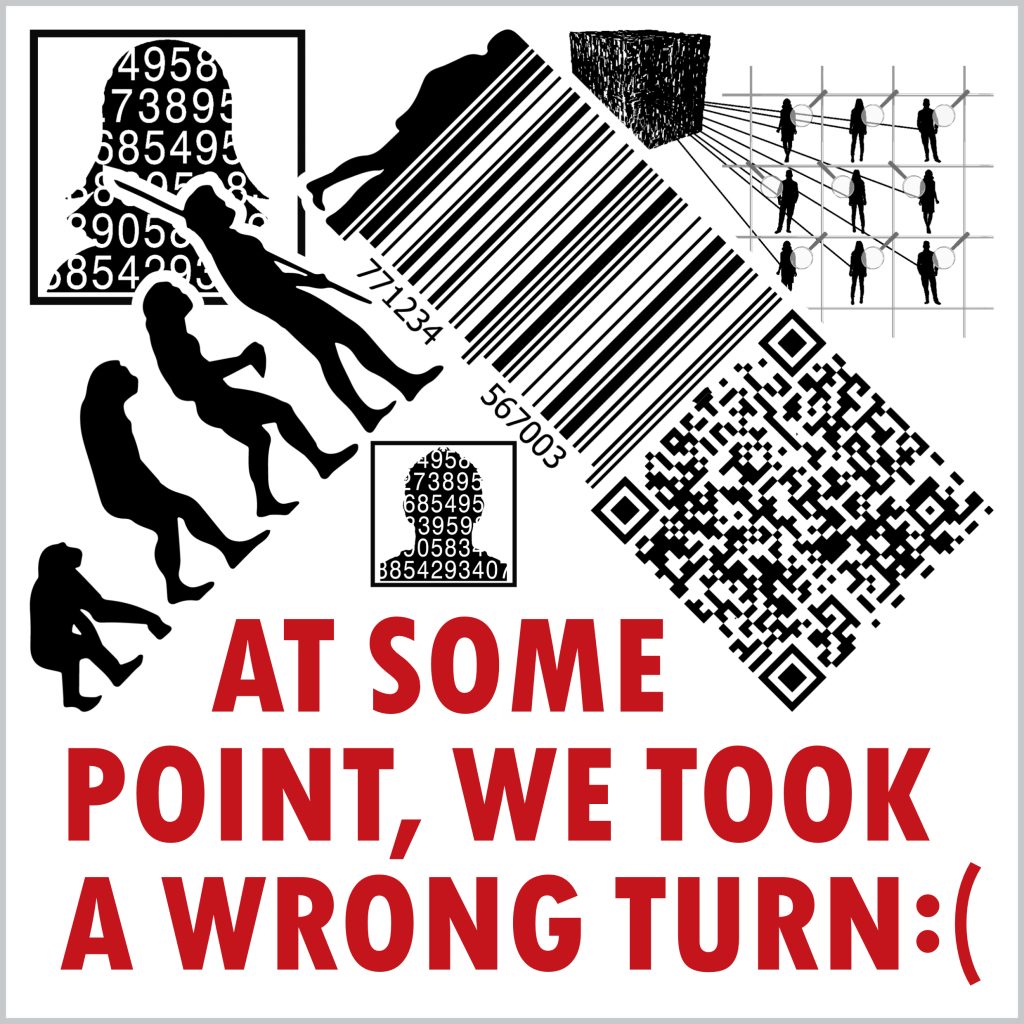
The Stirrer
I’m currently reading a number of books about the 1970s, the decade in which I reached adulthood. The books contain a number of different takes on the cultural and political landscape of what was, and still is, viewed as a tumultuous and ultimately, a transformative decade. A decade that looking back on it was pretty much one crisis after another. Actually, it was more like a clusterf**k of crises succeeding another clusterf**k of crises! A decade that left its scars on a country, the United Kingdom, that was in a steep decline as the post war consensus, or at least the illusion of a consensus, finally broke down. A decade that some commentators have implied left it’s scars on those who lived through it, particularly those of us who came to adulthood in those years.
There are a number of reasons why I’m reading and re-reading these books about the 1970s. On a personal level, as I’m now on the wrong side of sixty five years old, I feel the need to look back at my life and the decades I’ve lived through in a bid to take stock, and come to terms with my experience of them. I also want to compare the crises of the 1970s with the weird, increasingly dystopian situation we’re in right now and start the process of assessing which is worse and why.
Looking back at the 1970s
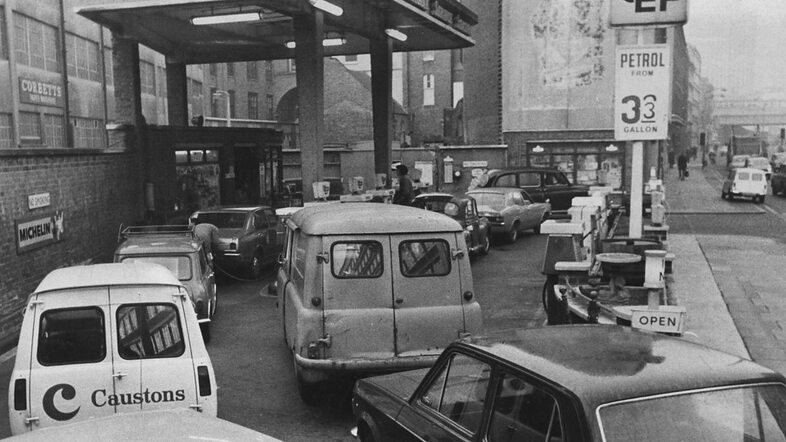
As you may have gathered from a number of my previous writings, I believe that we’re in a crisis situation now, one more serious than any I’ve known in my life. The reason I’m starting this piece by looking back at the 1970s is to try to work out as best I can, why what we’re experiencing now is qualitatively worse than what I went through in my youth. One thing I do have to take into account is the total transformation of the media landscape, particularly with regard to the Internet and all pervasive social media. That will be dealt with later on in this piece. What I want to do now is to take a look back at how me, my partner and my mates at the time experienced the crisis years of the 1970s.
The optimism of the 1960s was short lived and didn’t even last until the end of that decade. The 1970s was a decade of economic decline, industrial strife, social upheaval with the conflict in the north of Ireland always there in the background. These crises were the backdrop and on a fair few occasions, the foreground of our lives. How did we cope? Basically, we just got on with it and made the best we could of the decade. I remember courting my now wife in pubs lit by candle light and torches, as a combination of a miners strike and an energy crisis as a result of war in the Middle East took hold, resulting in widespread power cuts and fuel shortages:)
With the optimism of the 1960s an increasingly distant memory, a certain nihilism took over which manifested itself in some of the music of the decade and most definitely on the terraces of the football grounds as traditional rivalries turned into a darker form of tribalism. A tribalism that I some points I found myself cheering on from the fringes and occasionally getting caught up in in my ill judged youthful enthusiasm. That was most likely down to the sense of belonging it offered in a world that was in a state of flux.
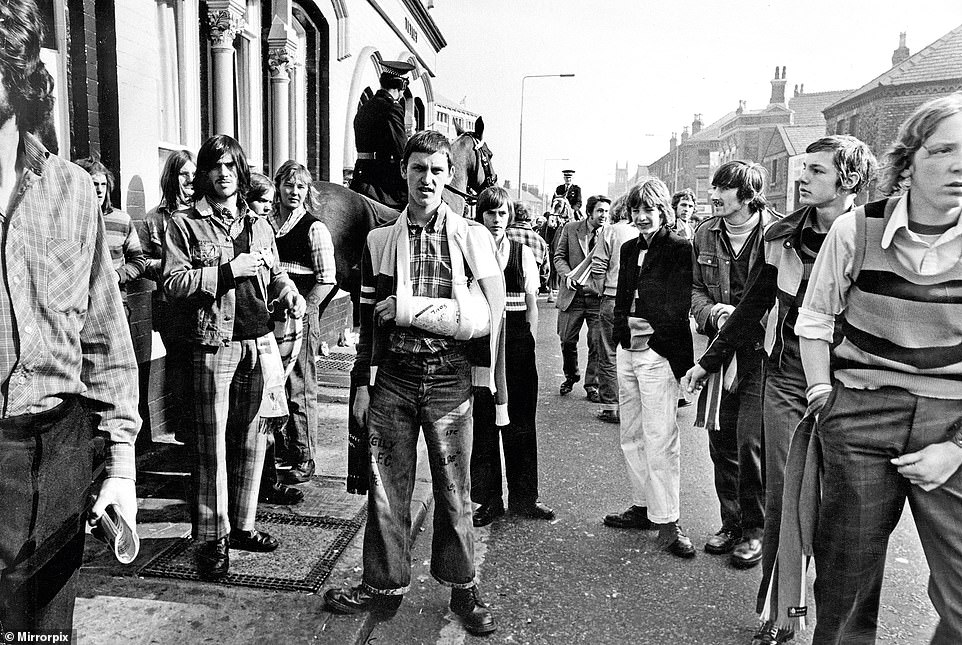
Despite the sense of crisis and the fact that I was going through the awkward process of adolescence and moving towards adulthood, overall, my memories of the decade are reasonably positive. I remember having endless, often heated discussions with my mates about the politics of what was happening at the time. It may be me looking back through rose tinted glasses but it did seem that there was more willingness to engage with current affairs and discuss and debate them than there is today. It may be because we agreed to disagree and still remain mates. Unlike the social media saturated climate of today where people can snipe anonymously while enforcing cancel culture, we had these discussions out face to face with each other. Interaction was face to face and looking back, compared to the toxicity of a lot of online engagement, it was a lot healthier.
Fast forward to the present…
The present can’t be discussed without acknowledging how social media, or more accurately, anti-social media has transformed the way we all communicate with each other. This, and the Internet, has also transformed the way we receive and interact with news and commentary, mainstream and alternative. Compared to the 1970s when news came via a printed paper, a television or a radio news broadcast, today we’re living in an age of information overload. That information overload makes the job of discerning whether the current period is more dysfunctional and dystopian than the 1970s a pretty tough call. The rest of this piece will be devoted to trying to making that call and drawing out some tentative conclusions.
Comparing what we face now with what we faced in the 1970s is not comparing like for like. With a smartphone in your pocket and left on by the bedside table at night, you can be plugged into the doom cycle pretty much 24/7. We’re bombarded with so much information, disinformation, manipulation, click-bait, opinion and outrage, separating out the signal from the cacophony of noise is nigh on impossible. This is not to say that the media landscape back in the 1970s was any better because it wasn’t. There was still bias and manipulation, it’s just that there was a lot less of it to wade through. With this deluge, how can we even begin to address the question of whether what we face now is worse than the 1970s?
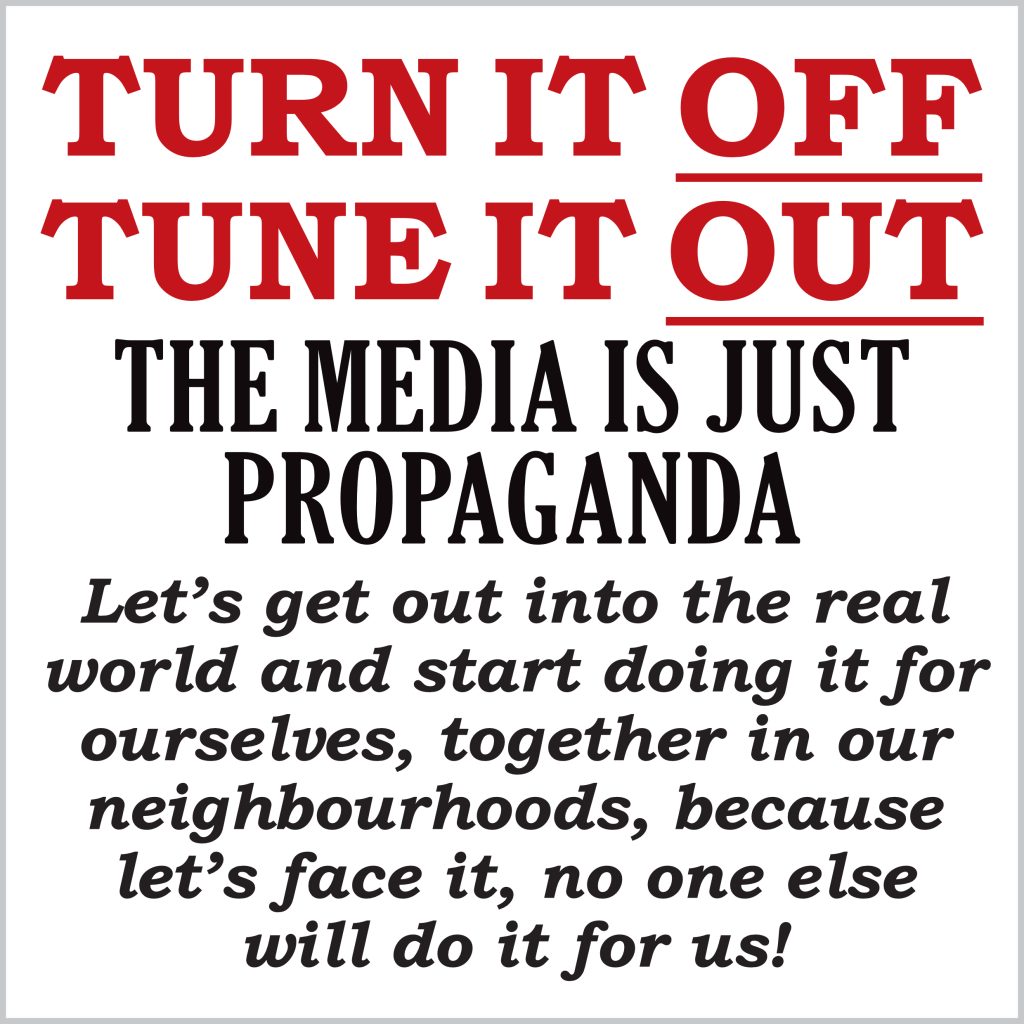
Well, I’ve just described the symptoms of one thing that’s making life a lot worse now than in the 1970s – information/disinformation overload and 24/7 social media. Having an always on smartphone in your pocket means you’re effectively on social media for as long as the sodding phone is switched on. That means being available 24/7 to respond to whatever messages and posts flash across your screen. It means you living at least a part of your life through social media. It means a bombardment of information/disinformation. It means allowing other people, other entities and the corporations who shove this shit down our throats to effectively own our lives. It means allowing ourselves to be constantly distracted. It means never having the time to switch off, slow down and actually think.
Social media is pushed as something that’s supposed to connect us but it reality, it does the exact opposite. A brief exchange of messages, quite possibly with a ‘friend’ on Facebook you’ve never met in real life is so far away from a meaningful face to face conversation, there’s no comparison. Many of us found that out the hard way during the initial Covid lockdowns of 2020 when face to face contact with anyone outside of your ‘bubble’ was frowned upon and the only way you could connect with most people was through social media and Zoom. That was a soul destroying and profoundly depressing experience. Not least because it’s so easy to misinterpret online interactions and end up falling out with people in a way that simply wouldn’t happen with a face to face conversation where you can read a lot of non-verbal body language that will put things into context.
The over-reliance on the Internet and social media is a symptom of one of the things that makes the present a lot worse than the 1970s. One reason being that we don’t own the infrastructure and channels of communications – inevitably, they’re owned and manipulated by corporations who do not have our interests at heart. This article has been written and posted using what is to all intents and purposes the enemy’s infrastructure. One that if we stick our heads to far above the parapet can be switched off leaving us isolated and without a means of communication.
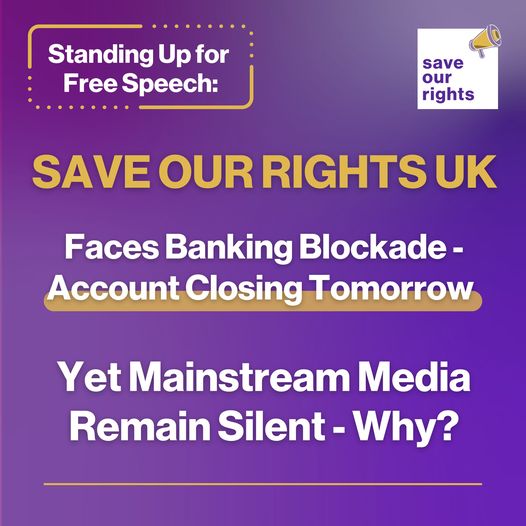
Not only can we be left without a means of communication for having the temerity to say what you actually think, as the following press release from Save Our Rights UK shows, we can also be left without any access to banking services and our money:
A TWO YEAR FIGHT FOR FREE SPEECH AND BANKING RIGHTS
In the backdrop of a growing dispute regarding the closure of bank accounts for customers holding controversial views, a UK human rights organisation, Save Our Rights UK (SORUK), is struggling with similar issues. Founded by Louise May Creffield in April 2020, SORUK became a non-profit company in November 2020 with the mission to establish real democracy in the UK, preserve human rights and civil liberties, and bring transparency and accountability to society.
However, this relentless pursuit of civil liberties has come at a cost. Following her first court appearance in May 2021, in which she pled not guilty to charges relating to the organisation of protests, Creffield received a notice stating that SORUK’s business bank account would be closed. For over two years, the group has struggled to open a new account with any bank, forcing them to resort to using personal bank accounts for transactions.
“The disruption caused by the abrupt closures is staggering,” said Louise May Creffield. “This situation not only infringes upon my personal banking capacity but also hampers the operations of our organisation. We are financially stable with minimal outgoings, yet these closures severely impede our ability to carry out our work. Yet, the work we do is vital for ensuring the preservation of human rights and democratic principles in the UK.”
This week, another blow was struck when the Co-operative Bank announced it would be closing Creffield’s personal account on 6th July, currently being used for SORUK transactions. With no other options available, this underlines a distressing trend of financial discrimination against organisations expressing controversial views.
Among its recent achievements, SORUK has significantly contributed to preserving human rights amidst the rise of emerging technologies. By guiding and supporting thousands of individuals to voice their concerns on consultations about Central Bank Digital Currencies (CBDCs) and Digital IDs, the organisation plays a pivotal role in shaping public discourse. Moreover, SORUK has successfully drawn public attention to the now-scrapped Bill of Rights consultation and motivated constituents to lobby their MPs on a variety of urgent issues, such as preserving the use of cash and protecting home education. Yet, despite these victories, the constant struggle with financial institutions threatens to undermine both the group’s past successes and its ability to carry out future vital work.
In the midst of these unsettling developments, the question looms large: in a society that values freedom of expression and peaceful protest, should financial institutions hold the power to silence voices they find controversial? The predicament accentuates the pressing need for transparent regulations to safeguard citizens and organisations from whimsical account closures.
With the Chancellor looking into the matter, there’s a glimmer of hope. However, Save Our Rights UK calls for more than just superficial promises. We need a commitment to immediate action, urging financial institutions and regulators to devise and implement transparent and equitable procedures that prevent these entities from unjustly restricting the activities of organisations and individuals based on their expressed views. We hope for robust and practicable guidelines that can weather the test of time, not just tokenistic gestures.
The communications and broader digital infrastructure we’re obliged to rely upon means allowing the bastards to suck us into their control matrix where eventually, they end up dictating the terms of discussion and interaction. That is profoundly disturbing…
Losing any sense of who we are and where we belong
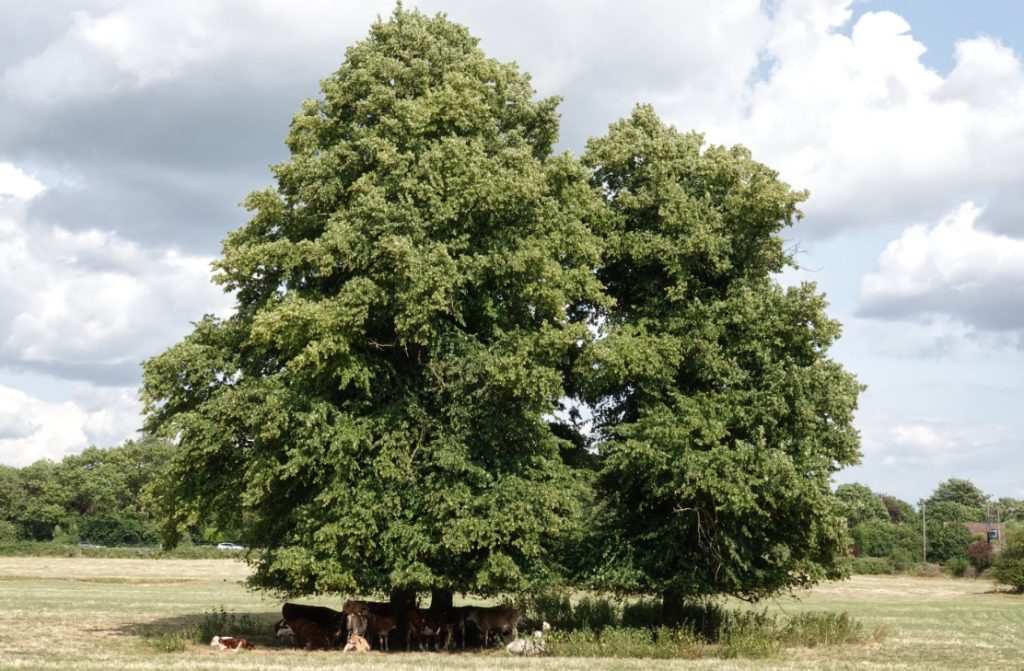
Changing tack, I’ve been reading a lot about how we’re becoming ever more detached from the natural world that ultimately supports us. That’s not something that’s unique to the current period. This was something that was keenly felt back in the 1970s and was a factor in the rise of environmental activism. An activism that was very different from what currently masquerades as an environmental movement. The disconnect from nature wasn’t anything new, even back in the 1970s. It’s something that has been a depressing feature of our lives ever since the dawn of the Industrial Revolution when our ancestors were torn from the land and their crafts by agricultural ‘reform’ and obliged to flock to the towns and rapidly growing cities to seek work in the burgeoning factories and mills.
Urbanisation meant ripping people away from folk traditions that reflected the rhythms of the seasons and kept us in touch with the natural world. It was the start of the emergence of a mass culture that functioned as a distraction from the pain of of being uprooted from the land and from nature, and being forced into a machine like existence dictated by the clock. That’s a process that has been continuing ever since, one that’s constantly ramped up by developments in communications technologies. Each ramping up has been exploited to further distract and distance us from our roots in nature and from any meaningful expression of spirituality. Being close to nature and being aware of the need for spirituality means being aware of who we actually are. Once that awareness emerges, we can then start to see the sickness and depravity of the machine and control matrix that’s being used to dominate and control us. Which is why the bastards – aided and abetted by too many useful idiots – are doing everything they can to denigrate spirituality, depth and a connection with nature.
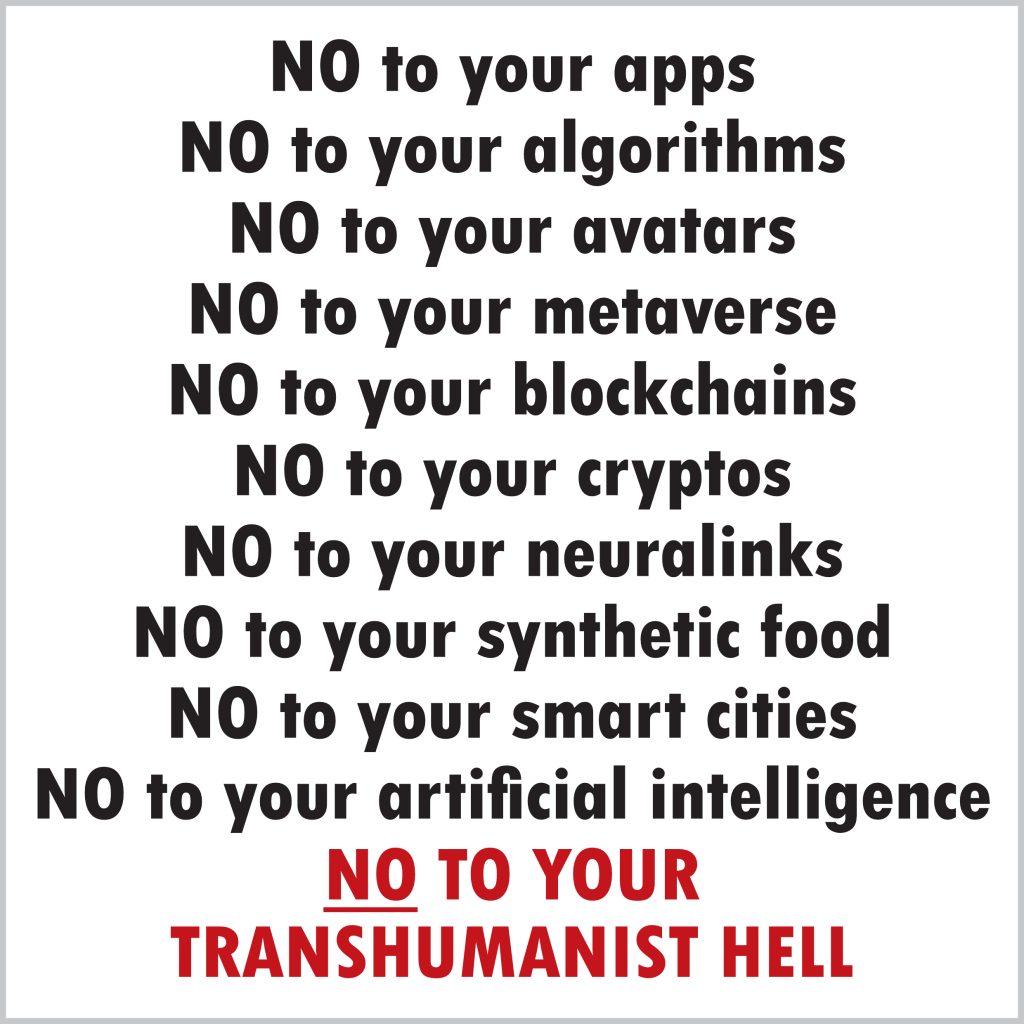
Technological developments increasingly allow the bastards in charge to play God. That’s not just playing God with the environment that’s supposed to support us but also, playing God with our bodies in a way that takes us further away from nature. Transhumanism which is inextricably entwined with gender ideology and the increasing denial of what it actually means to be a woman is one way that the bastards are playing God with who and what we are. That’s playing God as in using anyone confused about their gender roles as a lab rat for surgical and medical interventions. That’s playing God with irreversible, life altering surgery and a lifetime of medication. Issues dealt with in some depth in this piece: We can’t go on like this… 13.6.23.
That’s playing God as in pushing reproductive technology to the point where if things remain unchecked, a woman’s body will effectively be made redundant as the babies are developed outside of the womb. Science fiction? To a degree, it’s already happening: We may one day grow babies outside the womb, but there are many things to consider first – The Conversation | 10.11.19. That means the frightening prospect of ultimately making parents redundant as a baby developed outside of the womb will be a ward of the system because it will have no natural parents. That allows the bastards to create the new, malleable type of ‘human’ they want to service their despotic need for ever increasing power and wealth.
Are we suffering from a form of future shock?
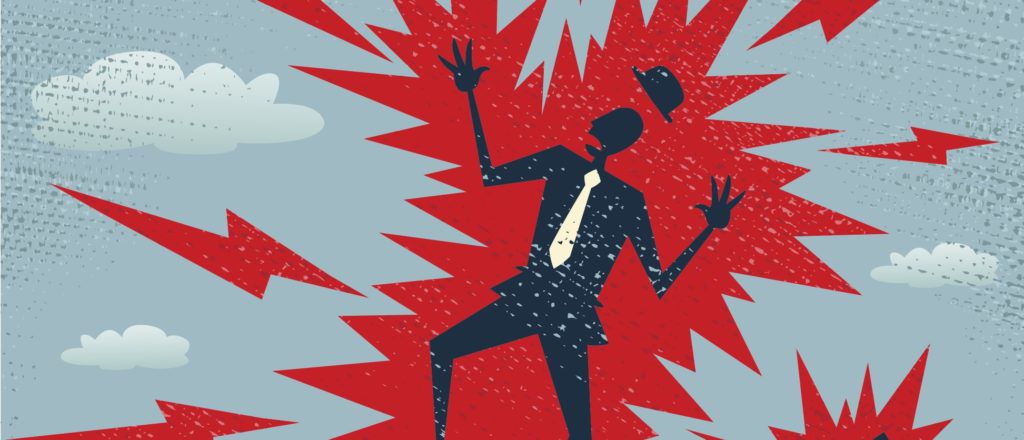
The title of this piece is ‘Future shock?’ It’s asking whether things have been accelerated to the point where a growing number of people are suffering from what can best be described as a form of future shock.
Is this genuinely the case or is it just me railing against a modern world that I’m increasingly struggling to relate to? Is it actually time that I, a so called ‘useless eater’, considered how to shuffle off this mortal coil to make way for those who are enthusiastically embracing transhumanism and the Fourth Industrial Revolution? I don’t want to alarm the few people who do care about me but, there have been times over the last five years when faced with phenomena from the uncritical embrace of transhumanism through to the unquestioning acceptance of the narrative we were fed during the Covid ‘crisis’ that I’ve asked myself what the f**k am I doing still being here? Rest assured, those moments have only been fleeting…
The answer to the question of whether things have accelerated is yes, they most definitely have. Technological developments have been the key to that acceleration. Developments that suck us ever further into an insidious digital control matrix.
Here’s one example of the pace of change that will cause problems for those of us oldies who have refused to fully embrace the digital revolution – the closure of the majority of railway ticket offices across the country: Railway station ticket office closures list in full – is your local station affected? 6.7.23. This is because of the relentless push towards buying and putting travel tickets on to a smartphone. A technology that back in the 1970s, I would have dismissed as science fiction. However, it’s a flawed technology as we’ve found out the hard way when trying to exit the railway stations at Bath Spa and Bristol Temple Meads, stuck with our paper tickets behind a queue of people struggling to get the barriers to recognise the QR code on their phones!
It’s that acceleration forcing us to embrace digital technology and get sucked into the control matrix whether we want to or not, that’s leaving more and more of us reeling, feeling that the only way we can describe what we’re experiencing is ‘future shock’. But, as outlined earlier, it’s an acceleration of a process that has been underway ever since the start of the Industrial Revolution. On the surface, the dire situation we’re in presents itself in new and changing ways. When you start to dig a bit deeper, a lot of what we face boils down to being disconnected from nature, and increasingly from each other, as we’re reduced to natural and human capital to be ruthlessly exploited by the elites who presume to rule over us.
Fighting back
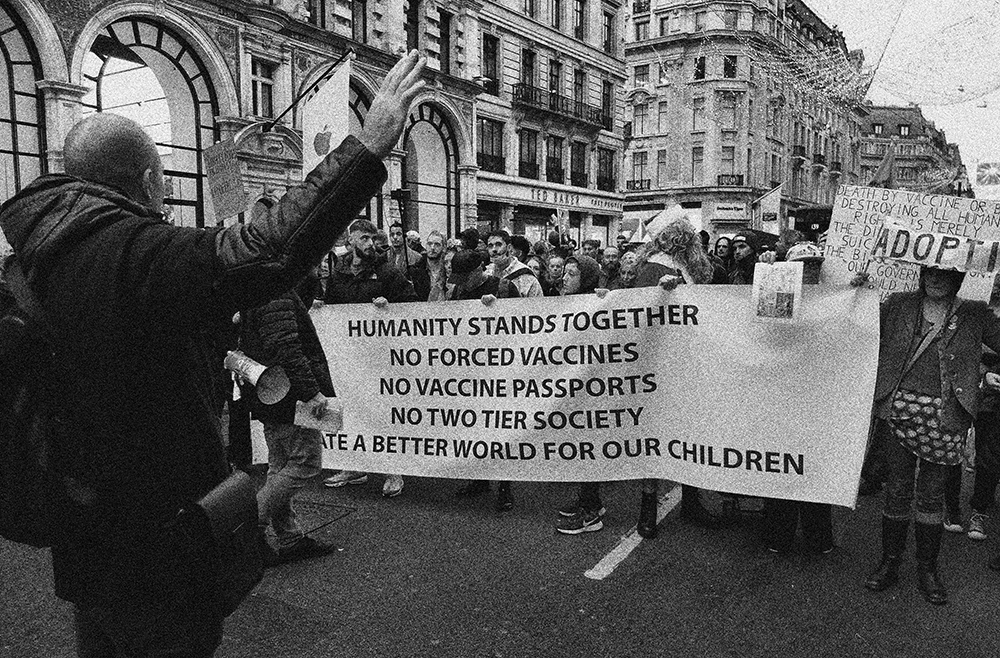
As I’ve mentioned in previous posts, with two grandchildren, I’ve got skin in the game and a reason to carry on fighting. Also, I know that I’m far from alone in increasingly recoiling from a present and future that’s increasingly dystopian. I know that I’m far from alone in wanting a way of life with a genuine sense of community and a real, deep connection with the natural world that supports us. I know that I’m also far from alone is seeking some kind of spiritual awareness that will carry us through the fight to come.
So, what does all of this make me? It probably makes me a ‘reactionary’ in the eyes of many of my former comrades. Here’s a definition for you from the Cambridge Dictionary:
a person who is opposed to political or social change or new ideas
‘Change’ and by association, ‘progress’, are such amorphous concepts, they can mean pretty much what anyone wants them to mean. So, given what I’m opposed to and what I’m for, it’s probably very easy for anyone who feels the need, to make the claim that I am indeed, a reactionary! Maybe, it’s time we reclaimed the word and started to make it mean something positive:)
One thing the experience of the last five years has taught me is that I’m far from alone. For sure, there’s no cohesive movement against the dystopia that we’re being dragged into. There are however, many swirling currents of opposition full of people questioning what’s being done to us, why it’s being done to us and searching for a way forward towards a better, more fulfilling and genuinely sustainable life.
Danica Thiessen has written this about the opposition that’s emerging:
What is noticeable is that the opposition to transhumanism is broad, ill-defined and diverse. Bostrom notes that “right-wing conservatives, left wing environmentalists and anti-globalists” are all pushing back against central transhumanist aims.
You can read her perceptive thoughts on this in full here: The Acorn – 84: 2. Transhumanism: the opposition.
We talk, debate and sometimes row about what’s being done to us and how we can move forwards. That thrashing out of ideas, visions, strategy and tactics is what should happen in an emerging movement. What we do realise is that there many, many more of us than the elites who presume to rule over us. That means that one day, their dystopian vision of the future they’re trying to impose upon us will be smashed, once and for all. This will make way for a future based on free association, mutual respect, mutual aid, a genuine connection with the natural world that supports us and a spiritually that will offer us a meaningful, fulfilling life.
